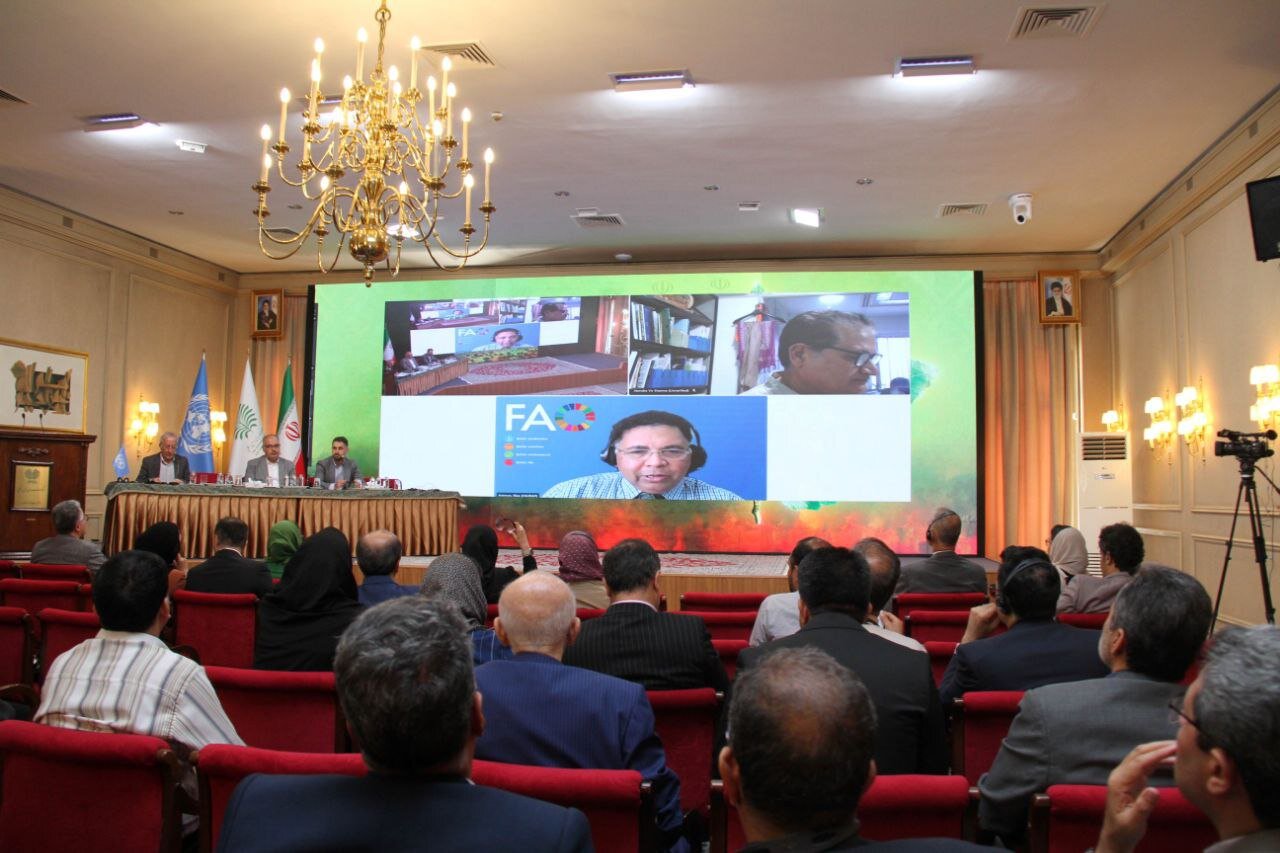FAO highlights SFM practices to address Zagros Forest challenges

TEHRAN – Food and Agriculture Organization (FAO) Forestry Officer from the Regional Office of Asia Pacific has highlighted the need for adopting global Sustainable Forest Management (SFM) practices at the local level to address Zagros Forest challenges.
A special panel titled ‘International Cooperation, Lessons Learned and Best Practices in Sustainable Management of Zagros Forest’ was organized virtually on Tuesday by the Ministry of Foreign Affairs, Natural Resources and Watershed Management Organization (NRWMO) and the United Nations Resident Coordinator’s Office.
Attending the panel, the FAO officer Illias Animon presented various dimensions and approaches of SFM and the relevance of integrating SFM as a key component of agrifood system transformation. He also cited the global aspirations of increasing forest cover by three percent.
Presenting global case studies from Nepal, Cameroon, Vietnam, Gambia, South Africa, and China, he emphasized the importance of active community engagement, institutional reform, and participatory approaches as some ingredients for success. He also cited results of global analysis on the excellence in SFM and community forestry.
Animon presented major challenges in the Zagros Forest, including land use change, soil erosion, limited local community awareness and engagement, climate change impacts, oak charcoal disease, and inadequate integration of management approaches.
He stressed the need for coordinated action and proposed solutions such as adaptive learning and management, stakeholder engagement, investment in alternative models, good governance, resilience building, and landscape-based approaches.
He also highlighted various FAO tools and FAO-supported projects in Iran that contribute to sustainable forest and land management, including the oak dieback response project, resilience oak decline, rehabilitation of degraded land, and enhancing Iran’s access to climate finance through the Green Climate Fund (GCF).
He emphasized the need to build on these projects and integrate community-oriented conservation, restoration, and sustainable and inclusive value chains of products and services, working across landscapes and marginalized communities to ensure (a) sustainable ecosystem services flow and (b) building a meaningful bioeconomy with circularity.
This can pave the way toward a more resilient and sustainable future for Iran’s forest ecosystems, particularly in the Zagros Mountains.
The outcomes of these panels will feed into the “International Conference on Sustainable Zagros Forest Management,” scheduled to take place later in June in Tehran.
Preserving Zagros Forest needs global cooperation
Iran has called on international institutions and other countries to help preserve Zagros forests through a comprehensive cooperation program, the head of the Natural Resources and Watershed Management Organization has said.
Zagros forests are among the most important natural resources of Iran, as they constitute 40 percent of the country’s forests, and play an important role in the production of a large part of the country’s freshwater.
Iran is famous for having one of the oldest forests in the world. 300,000 hectares of the forests in the country are inscribed in the UNESCO World Heritage list, IRNA quoted Ali Teymouri as saying.
The official made the remarks while addressing the international conference on the sustainable management of Zagros forests.
“Due to their geographical location, these forests have a high diversity of flora and fauna. Zagros forests are home to more than 2,500 plant and animal species that are not found in other parts of the country or even the world, which indicates their rich biological diversity.
These forests play vital economic and social functions, and contribute to local communities’ livelihood. However, they are threatened by different factors such as climate change, frequent wildfires, and illegal exploitation,” he added.
To address environmental challenges and improve sustainability indicators, Iran needs to develop international collaborations that focus on providing technical support, exchanging experience, financing, as well as regional and scientific cooperation, Teymouri said.
Leave a Comment